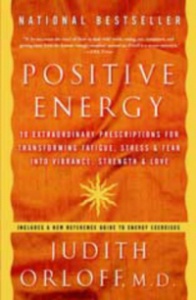Are you an empath? To learn coping skills, get my PDF “Life Strategies for Sensitive People” here.
Over the years, throngs of stressed out patients have come to my office to consult me about burnout. Mothers, actors, teachers, dog groomers, each with their own reasons why life is overwhelming.
When they are feeling overwhelmed one of the first aspects I address is how to pace themselves in a rhythm that makes intuitive sense for them. Just as heart beat and  respirations determine our physiological tempo, pacing sets our subtle energy clock’s timing. Often we get caught in extremes.
respirations determine our physiological tempo, pacing sets our subtle energy clock’s timing. Often we get caught in extremes.
What causes overwhelm? In my experience as a psychiatrist, rushing tops the list. Webster’s dictionary defines it as “a violent forward motion; to act with haste…in a short time at a high speed.” Energetically speaking, it’s running on more cylinders than you’ve got. Rushing is toxic because stress is cumulative. On perpetual overload, your physiology responds: cortisol, the “stress hormone,” surges; seretonin, a chemical protector against depression and anxiety, plummets. That, in combination with an inevitable diminution of subtle energy completes the downward spiral.
We rush for many reasons. To dull emotional pain. To flee from anxiety, depression, or feeling we’re not enough. In response to unrealistic expectations of what we can accomplish in a finite period. Fear of stillness and silence. Whatever the reasons, rushing is different from operating quickly and efficiently when your rhythm’s in sync with a busy balanced life.
These intuitions give rushing away
For me, rushing is a consciousness shrinking altered state. It blurs into a bad hallucination, as if my energy body fragments and races ahead of itself while the material me is trying to catch up–a tinge of vertigo, a nauseating disconnect. Be certain: rushing steals well-being, ages you, and decreases immunity. It must never be considered harmless.
Even so, I understand how addictive rushing can be. As a USC medical student, my sixteen hour days were packed with life-and-death emergencies. I was on call every third night. This grueling pace continued when I opened my private practice. The most maddening part was wearing a pager. Strapped to my belt, it’d go off so frequently I’d catch myself fantasizing it would self destruct.
After years of pushing and rushing it finally sank in: my energy was being stretched way too thin. Wound tight, I’d get terse, snippy, hurrying myself and others along. It’s hard to be nice when you’re frantic. Worse, I’d drive and rush: more than once I got a speeding ticket zipping from the gym to the market so I could get home to unwind in a tub. I was rushing to relax! Ultimately, I rushed my way right into an energy crises. Refusing to slow down, my body intervened. A profound weariness came over me which lasted nearly year. I was forced to cut back on speaking engagements and other commitments. Doing so made me realize how much I craved the nourishing sense of presence that being in the moment brings.
Here are some changes from my book Positive Energy that you can make to address your sense of overwhelm.
Secrets to finding the right pace of life for you
Realign with a more comfortable rhythm: Make gradual changes. Focus on one area at a time. Ask yourself: What kind of change would feel good? Focus on small, do-able chunks, not an instant overhaul. Say, your job. Try out ten minutes of a nurturing pace. Savor how that feels. Then build on it. See if your well-being improves. Energy never lies.
If you’re a rusher: Let at least a few minutes each day be a meditation on energy focus. Rushing is best reduced in increments. Don’t get ahead of yourself. Attempt to be totally present. Open your senses. Take pleasure in tulips, cascading fountains, the aroma of baking bread. Respond with your full attention. If this exercise feels good, try it daily. Then increase the duration from there.
If you’re on deadline: To survive these potentially oppressive clinches be sure to plan mini-breaks to utilize a quickie subtle energy technique that has saved me. For just a minute, take a few deep breaths while touching your intuitive center–this heightens focus and brings you back to center.
If your pace is too slow: Intuitively tune into an activity that brings you joy. It can be anything: ice skating, gardening, volunteering at a soup kitchen. Once that memory is rekindled plan to do it. If the activity makes you happy, begin to incorporate it into your routine. The aim is to jump start positive energy if you’re underperforming or shutting down in another arena.
The key to success at managing overwhelm is to ease into a new pace. As some of my overzealous patients have discovered, making giant leaps too quickly can sabotage your efforts. They end up feeling like failures, demoralized, until they emotionally regroup and begin again. Please, no grand gestures. Just start moving in the right direction. This sends a positive message to your life force. Don’t worry if you slip into old habits. We all do. Every minute you’ve succeeded renews vitality and awe.
Adapted from Dr. Judith Orloff’s ”Positive Energy: 10 Extraordinary Prescriptions for Transforming Fatigue, Stress, and Fear into Vibrance, Strength, and Love ”




I am interested in taking your courses.